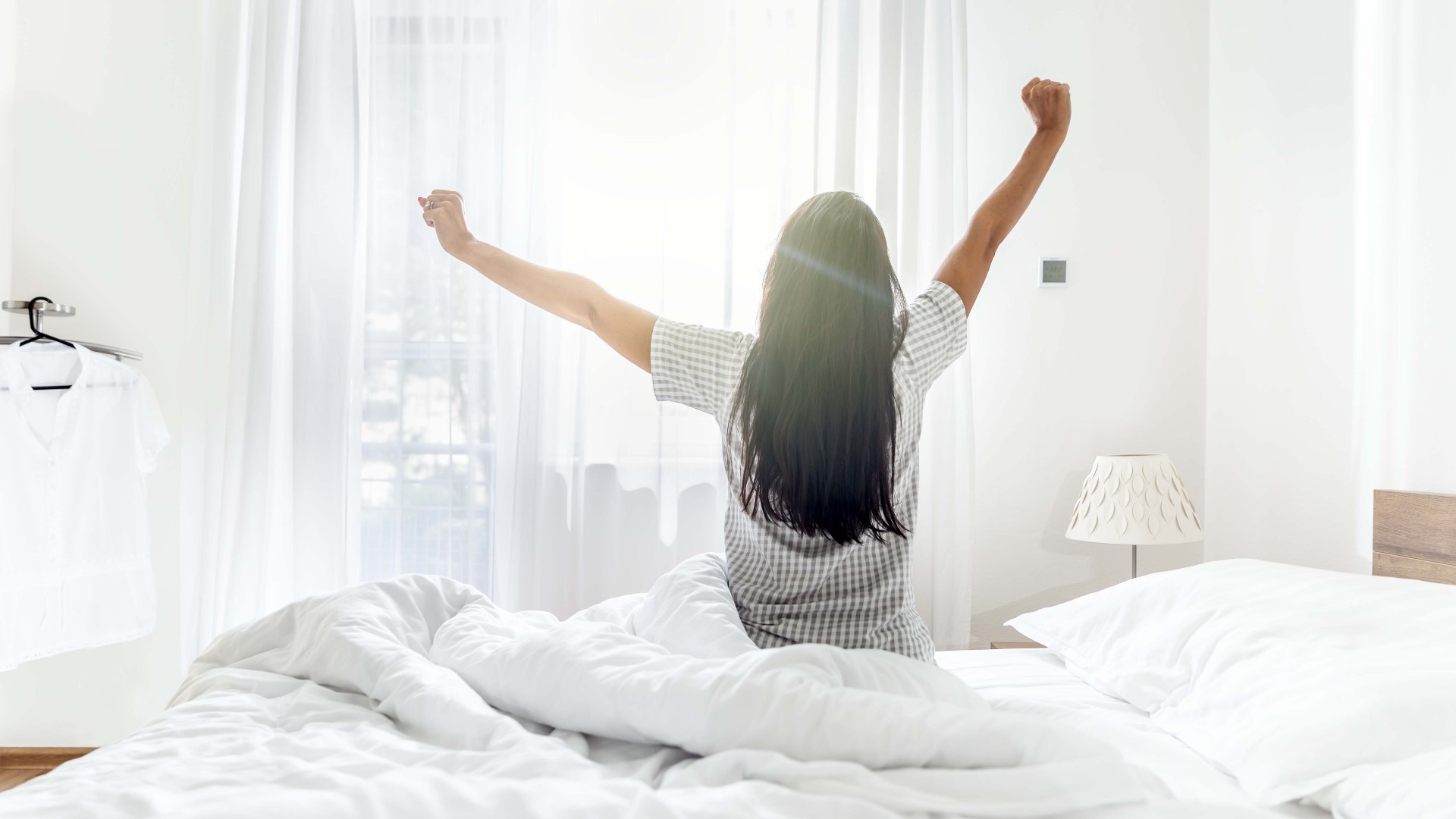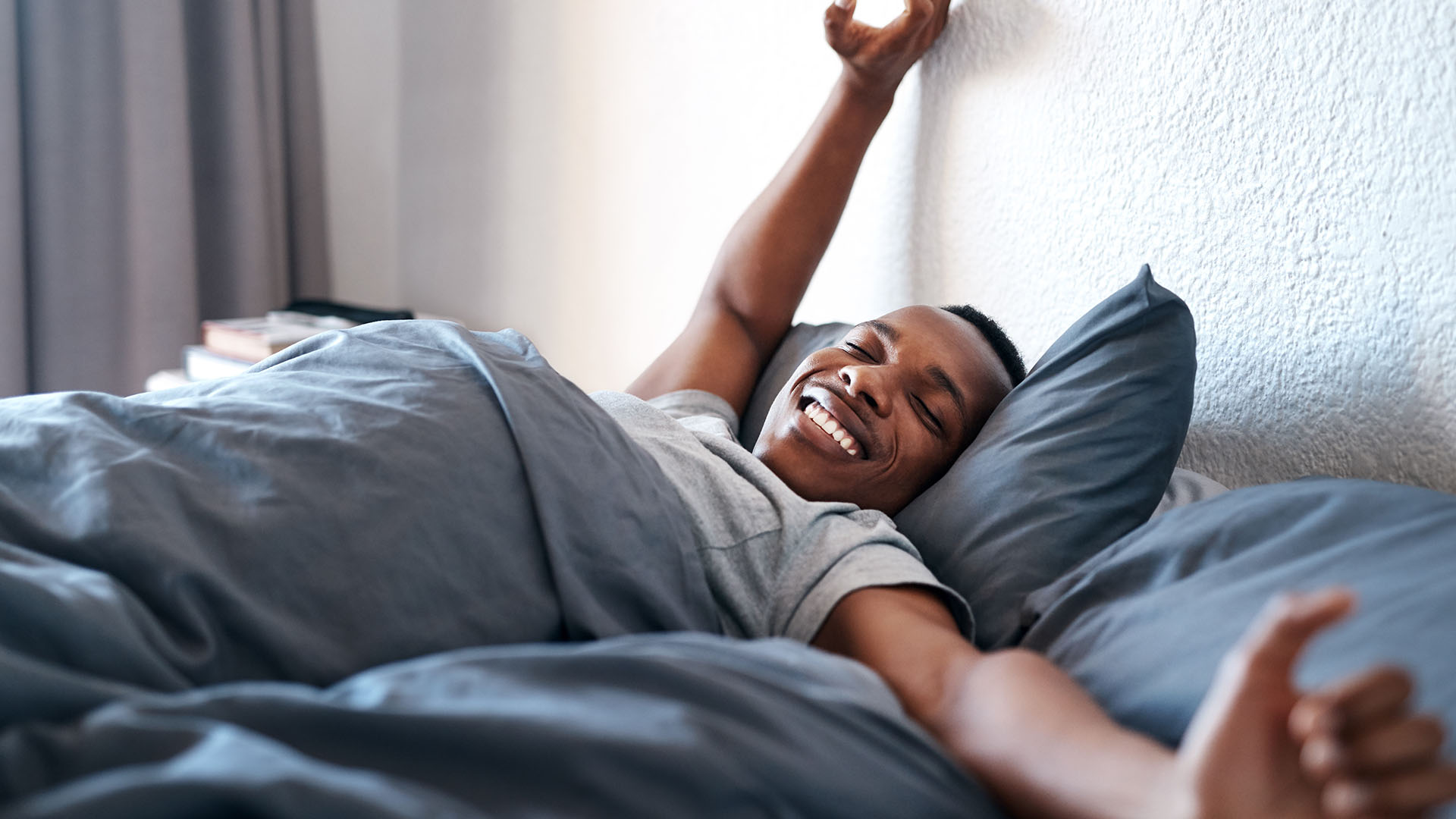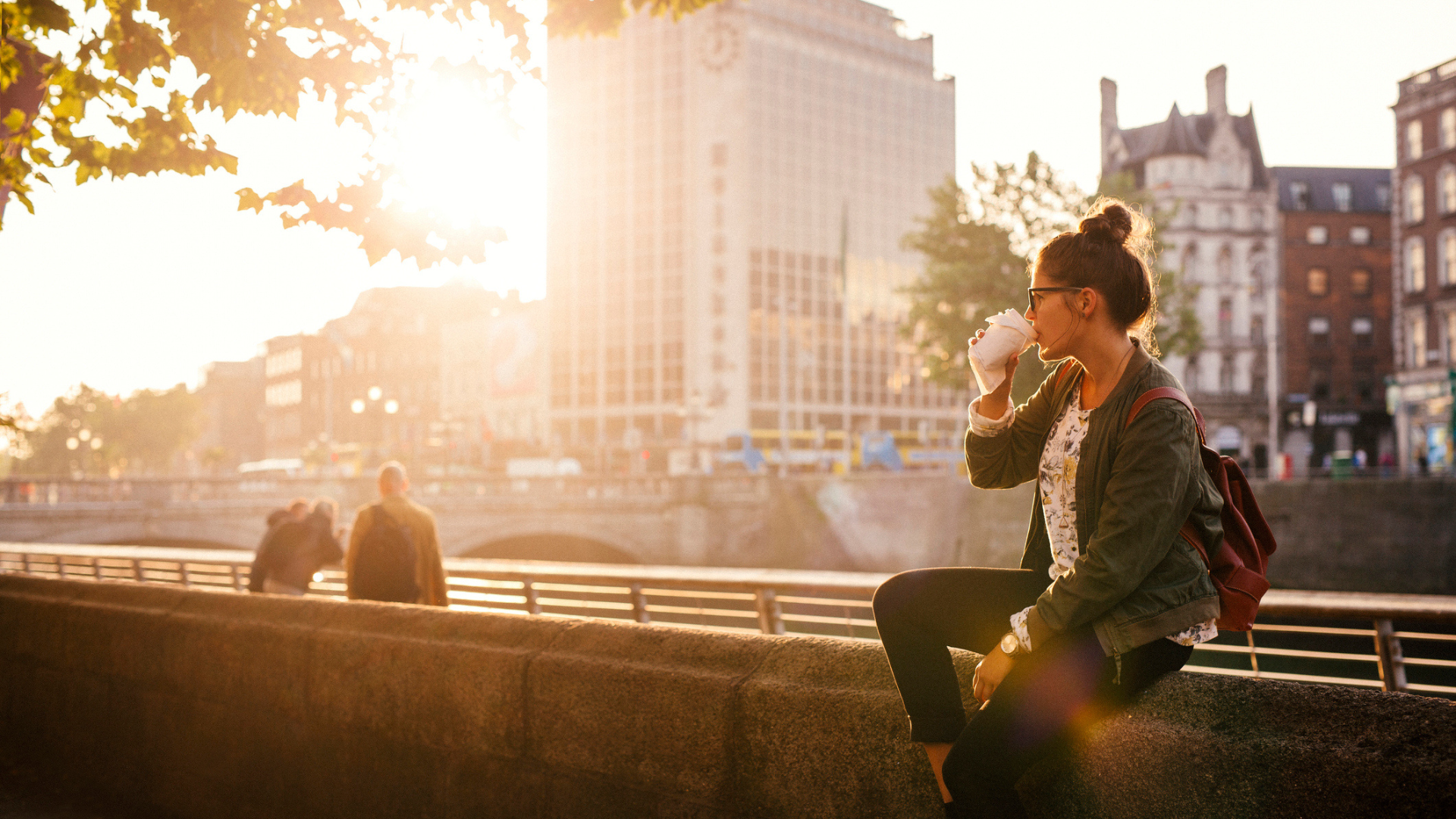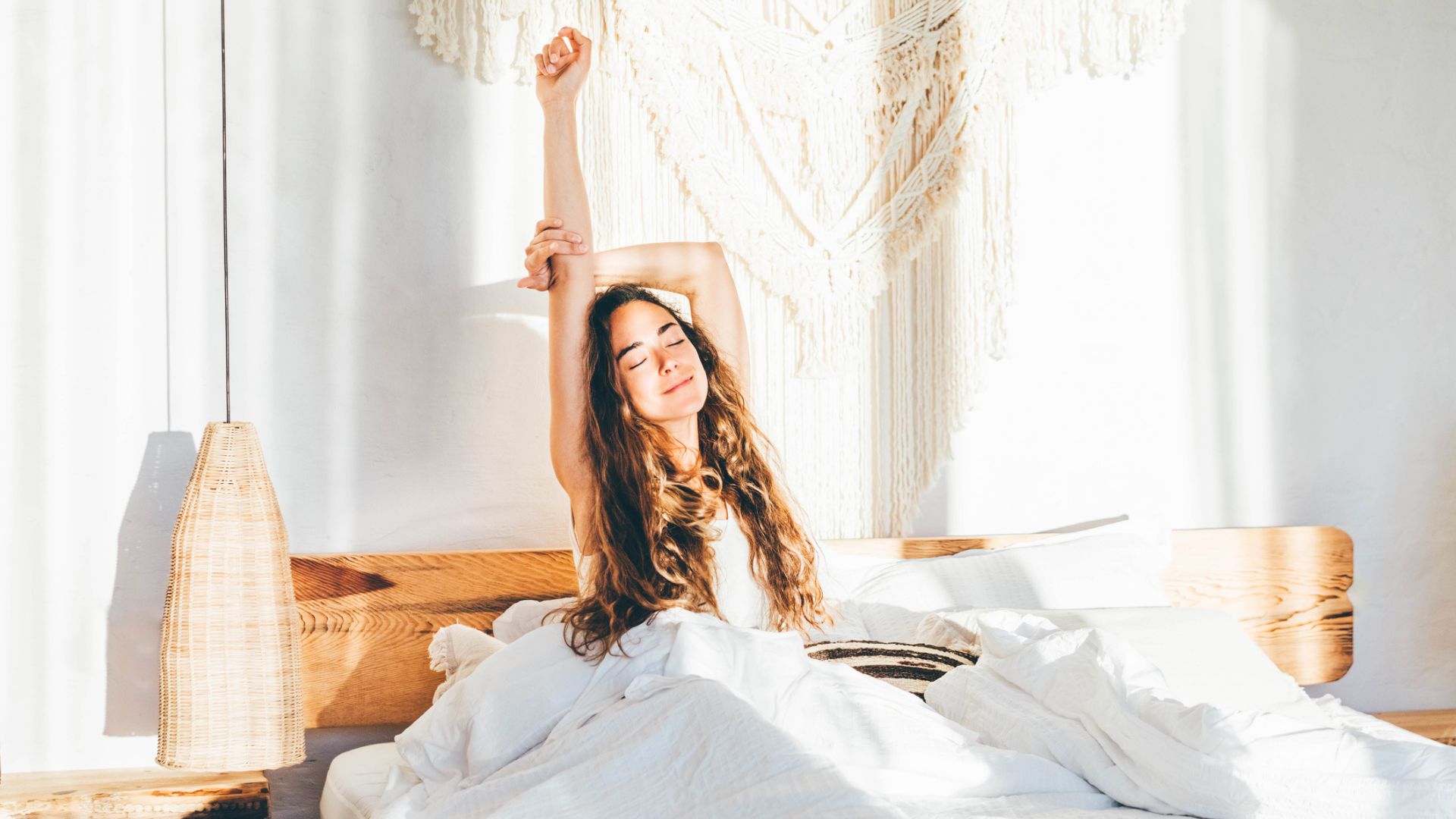Better sleep starts with morning sunlight, new study suggests
Daylight can shape the quality of sleep you get — here's how

Morning sunshine is one of the brightest ways to start the day, and recent research indicates it might set you up for a good night as well. We all know that light helps you wake up and darkness helps you sleep, but are you aware light might also help you drift off?
A new study indicates that for the best quality sleep, you should enjoy light exposure in the morning. The findings also indicate that it's when you catch the sun, not how long you spend in the light, that's most important for your circadian rhythms. We explore just how important timing your daylight is in the quest for quality sleep...
- Read more: Daylight saving time ends earlier this year — how that impacts your sleep and 3 steps to prepare
Key takeaways from the study
- Exposure to sunlight can help regulate circadian rhythms
- Morning sunlight had the biggest positive impact on your sleep
- Time of sunlight exposure showed bigger impact than overall exposure
A study, published to Sage Journals' Journal of Health Psychology, has probed into how exposure to sunlight can effect our sleep. The study investigates both the timing of sunlight exposure and the length, to see how your sunlight habits might be impacting your sleep.
Over the course of 70 days, 103 adults recorded their sunlight exposure and sleep quality. The study used a multilevel modeling approach to account for other factors that can impact sleep.

The results indicate that the time of day you spend in the sun might be more important than the length of time you spend in the sun. Those who got sunlight in the morning recorded better sleep efficiency — falling asleep fast after getting into bed — as well as fewer nighttime awakenings.
But the amount of time spent in sunlight throughout the day didn't have the same impact on reported sleep quality. This indicates that our circadian rhythms are most heavily impacted by the timing of our light exposure.
This is a small study, and as a small study, there are limitations. Further research is needed to explore how morning sunlight, compared to total sunlight exposure, effects sleep. But with shorter days setting in, should we be making the most of gloomy winter mornings?
Get instant access to breaking news, the hottest reviews, great deals and helpful tips.
Why is sunlight important for sleep?
Our circadian rhythms help control certain physical and mental behaviors, and they're closely linked to light exposure. Exposure to light triggers the release of cortisol, a hormone for alertness, while a lack of light triggers the release of melatonin, also known as the sleepy hormone.
By enjoying light during the day and darkness at night, your body can better understand when to be awake and when to go asleep. Without these obvious outside influences, your internal clock might get confused, leaving you groggy, fatigued, and even sleep deprived. This is also why it's important to avoid light in the evening, as your circadian rhythm reads this as a sign to be awake.
When's the best time to get sunlight for better sleep?

Getting plenty of light exposure wakes you up in the morning, suppressing the release of melatonin and triggering the release of cortisol and serotonin. But it's not just your morning that early sunshine can benefit — it might help you get to sleep at night.
Early morning sunlight sets up your circadian rhythms. And by getting your body clock in order, you're more likely to feel awake during the day and sleepy as you head towards night. It's sort of like winding up an old watch first thing. By getting sunlight in the morning, you're running on the right time.
However, if you've missed out on the morning sun that doesn't mean you might as well sit in the dark for the rest of the day. We still recommend getting sunlight, vital for the production of vitamin D, at some point during the day.
How to add more sunlight to your morning
Kick starting your body clock with sunshine first thing might be good for your sleep, but as the mornings get darker, it can be hard to convince yourself to get out of bed. Here are some ways to make your mornings sunnier (and, consequently, your nights sleepier).
1. Open your curtains straight away
Your alarm goes off and rather than hitting snooze (or scrolling through your phone before your head has left the pillow) you should open the curtains right away. It's the easiest way to get some light into your mornings and convince your circadian rhythms that it's time to get going.
Another bright side (no pun intended) to this trick is that once you've gotten up to open your curtains, you'll probably feel less inclined to crawl back into bed.

2. Enjoy your coffee outside
If you're struggling to convince yourself to leave the house, give yourself something worth getting out the door for. Enjoy your morning coffee en plein air and supercharge your caffeine kick.
Leaving the house can be hard in the cold winter months, but a steaming cup of coffee (or your favorite hot drink) makes it that bit easier. And as you should cut down your coffee intake the closer you get to bedtime, morning is the perfect opportunity to soak up the sunlight and your caffeine.
3. Invest in a sunrise alarm clock
Sunrise alarm clocks can make your mornings easier by mimicking a natural sunrise and filling your room with light. This is useful for those with blackout curtains, but also on dark winter mornings, as it introduces light when it might not be naturally available.
Hatch Restore 2 Sunrise Alarm Clock: $169.99 at Hatch
The Hatch Restore 2 Sunrise Alarm Clock allows you to customize your sleep routine to wake up and fall asleep easier. A 30-day bedside trial gives you a chance to experience the promised fresher mornings without commit, while a 10-year warranty adds peace of mind.
Other tips for sleeping better
Morning sunlight might benefit your rest, but overall good sleep hygiene is important if you want to consistently enjoy a good night's snooze. Here are some tips to follow for better sleep all-round:
- Choose the right mattress: It's hard to sleep well when your bed isn't comfortable. And this year's best mattress guide features options for every sleep style. In fact, investing in a new mattress can lead to better sleep, and better health overall.
- Get active during the day: Exercising can benefit your sleep no matter what time of day you fit in your workout.
- Dim the lights at night: Just as light can wake you up, it can also keep you awake. As the evening sets in and you prepare for bed, lower the lights and step away from bright screens.
- Create a calming routine: A consistent nighttime routine can help you feel relaxed and ready for sleep, even if you spent all day in the dark.

Ruth is an experienced Senior Staff writer at Tom’s Guide, covering all things sleep and mattresses. She writes to help people sleep better, from how-tos to the latest deals to mattress reviews, and has interviewed an array of experts who share her passion. She is also our specialist on memory foam — she’s flown around the world to see memory foam being made — and leads our hotel mattress content. She has a deep interest in the link between sleep and health, and has tried enough mattresses, from Helix to Nectar to Simba, to know the right bed really can make a difference to your wellbeing. Before joining the team at Tom’s Guide, Ruth worked as a sleep and mattress writer for our sister website, TechRadar.
 Club Benefits
Club Benefits






